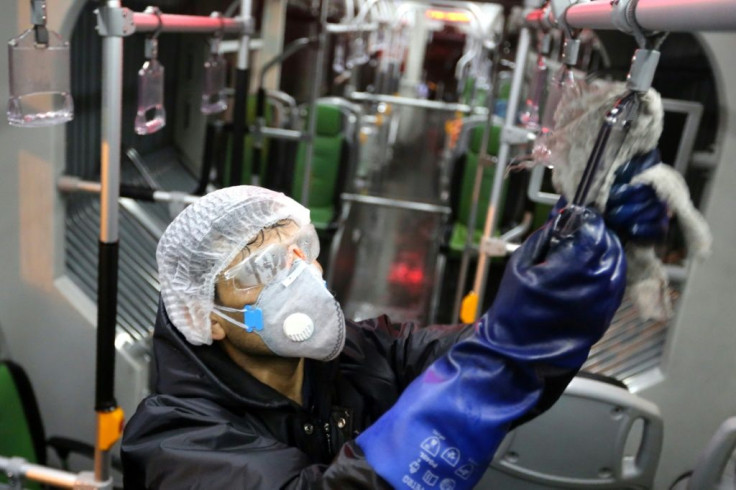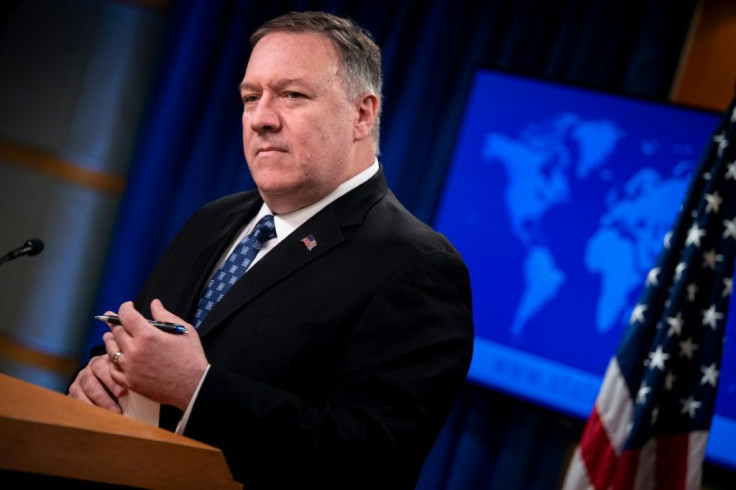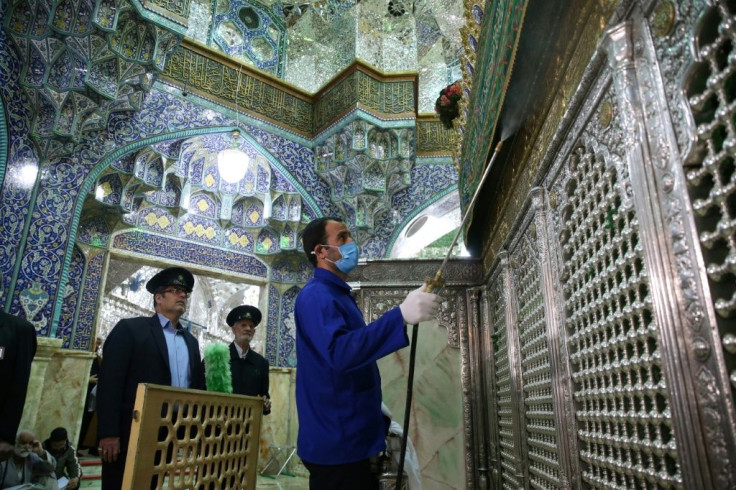Virus-hit Iran Slaps Curbs On Travel, Shrine Visits

Iranian authorities on Wednesday announced domestic travel restrictions for people with confirmed or suspected cases of the novel coronavirus, which has claimed 19 lives in the country -- the highest tally outside China where the disease originated.
The authorities also slapped curbs on visits to major Muslim pilgrimage sites.
"Instead of quarantining cities, we are going to implement movement restrictions for those suspected of infection or those infected," Health Minister Saeed Namaki said at a news conference.
He said teams of inspectors had already been placed at the entrance of cities "that see a lot of movement", without naming them.
The teams will take people's temperatures and stop those who are infected or suspected of infection, who will be quarantined for 14 days.
Namaki said access to several Shiite holy sites would be restricted, including the Imam Reza shrine in Mashhad and the Fatima Masumeh shrine in Qom.
Iran last week announced its first two deaths from the coronavirus in Qom, a centre for Islamic studies and pilgrims from abroad.
According to official figures, the virus has killed a further 17 people out of 139 confirmed cases of infection.
Visitors to the shrines will be allowed to visit on condition they are provided "with hand-washing liquids, proper (health) information, masks", the minister said.
They must "not gather together in groups but just pray and leave", he said.
In affected areas, school closures will be extended for three days, and universities for another week starting from Saturday, he said.
Also in these regions, weekly Friday prayers will be suspended, Namaki said.
"All of these decisions are temporary and if the situation changes, we might intensify or ease them," Namaki added.

Apart from school closures, sporting events have been cancelled and teams of sanitary workers deployed to disinfect buses, trains and public spaces.
International health experts have expressed concern about Iran's handling of the outbreak.
Such worries mounted on Tuesday when the head of the taskforce combatting the virus, Deputy Health Minister Iraj Harirchi, admitted he himself had been infected.
But health ministry spokesman Kianoush Jahanpour said Wednesday that the situation was "improving", even as he announced four more deaths and 44 new infections including in six previously unaffected provinces.

The head of a newly established cyber police unit, meanwhile, announced the arrest of 24 people accused of online rumour-mongering about the spread of the virus.
They were handed over to the judiciary, while 118 other internet users were briefly detained and received warnings, Vahid Majid said, cited by semi-official news agency ISNA.
The arrests were carried out after the establishment of a special unit to "combat rumour-mongers regarding the 'spread of coronavirus in the country'", he was quoted as saying.
Paris-based media watchdog Reporters Without Borders (RSF) charged that Iran "seems to be concealing information about the epidemic".
It condemned what it termed "Iran's persecution of media outlets and journalists publishing independent information".
"Respect for the public's right to full, independent, diverse and quality news reporting... is the best way to protect the population and combat rumours," said Reza Moini, head of the group's Iran desk.
Going on the offensive, Iranian President Hassan Rouhani accused Iran's arch foe the United States of trying to use propaganda about the virus to instil "fear" against his country.
The Americans "themselves are struggling with coronavirus", Rouhani said in a weekly cabinet meeting.
He added that "16,000 people have died of influenza there but they don't talk about their own (dead)".
His remarks came a day after US Secretary of State Mike Pompeo accused Iran of concealing the full extent of the outbreak, saying "Tehran may have suppressed vital details".
The latest health ministry figures show the virus has spread across the country.
There were 15 new cases in Qom, central Iran, nine in Gilan in the north, four in the capital Tehran and three in Fars in the south, it said.
The ministry added that Markazi, Kermanshah, Ardebil, Mazandaran and Semnan provinces each had one new case. Newly hit regions included Khuzestan in the southwest.
The health ministry's spokesman, Jahanpour, appeared optimistic about the situation in the worst-hit province of Qom, south of Tehran.
"Every 24 hours, at least 10 percent of those hospitalised or suspect cases are discharged with good general health," the official said.
But in Gilan, "things are slightly concerning", he added.
The province has had the second highest number of new cases, including people who had visited other provinces.
Iran has not quarantined any of the infected cities such as Qom, a method authorities dismissed as outdated and ineffective.
© Copyright AFP {{Year}}. All rights reserved.





















